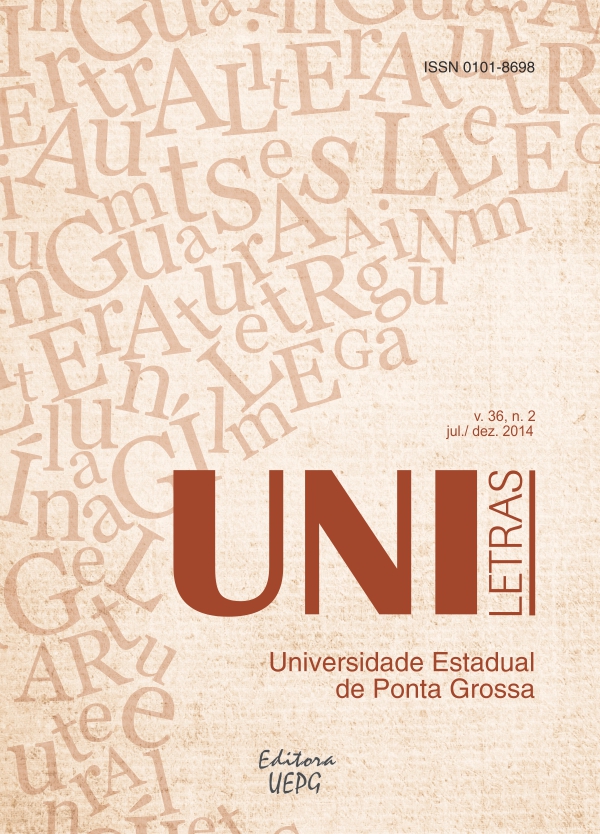Letramento digital, práticas sociais e implicações pedagógicas
DOI:
https://doi.org/10.5212/uniletras.v36i2.7355Keywords:
Letramento digital, História da leitura, Ensino de leitura.Abstract
As atuais formas de leitura decorrem do surgimento de novas práticas sociais, oriundas da vida moderna que, por sua vez, requerem que o sujeito assuma outras ou novas habilidades para lidar com as atividades de leitura e escrita. Numa retrospectiva histórica, constatamos que, da antiguidade clássica até a modernidade, deparamo-nos com uma série de modificações no ato de ler, dependendo das diferentes materialidades que serviram de suporte para os textos. Posto que o surgimento do computador e, mais ainda, da Internet desencadeou novos elementos para se pensar a questão do letramento, redirecionando os modos de ver esse novo conceito, pretendemos, no presente artigo, apresentar uma breve explanação sobre a história da leitura, enfocando as mudanças dos suportes, bem como a mudança no perfil dos leitores frente ao surgimento de novas tecnologias, e propor uma reflexão sobre o papel do professor diante dos letramentos digitais.
Downloads
Downloads
Published
Issue
Section
License
Authors that publish in the journal agree with the following terms:
a) The authors keep the copyright and grant to the journal the rights of the first publication, with the work simultaneously being licensed under the Creative Commons Attribution License that allows the sharing of the work with the recognition both of the authorship and the initial publication in this journal.
b) This journal provides immediate public access to all of its content, following the principle that making scientific knowledge freely available to the public provides greater worldwide democratization of knowledge. For more information about this approach, visit Public Knowledge Project, a Project that developed this system to improve the academic and public quality of research, distributing OJS as well as other softwares to support the publication system to public/open access to academic sources. Names and e-mail addresses in this website will be used exclusively for this journal purposes, not being available for other ends.

This work is licensed under a Creative Commons Attribution 4.0 International License.





